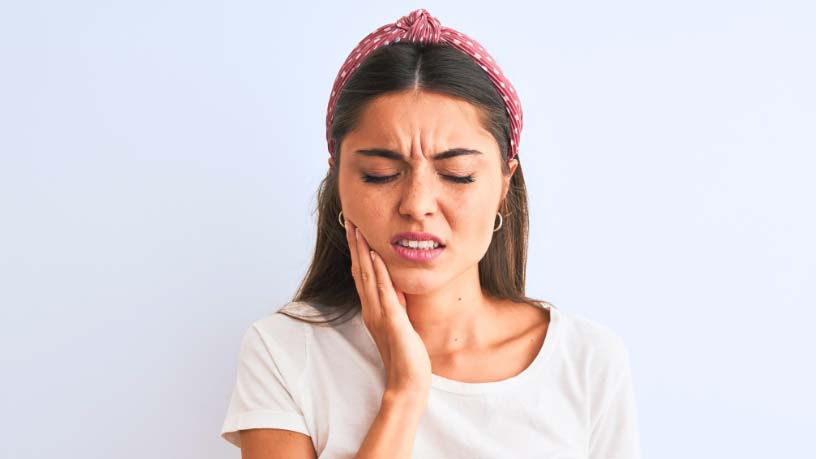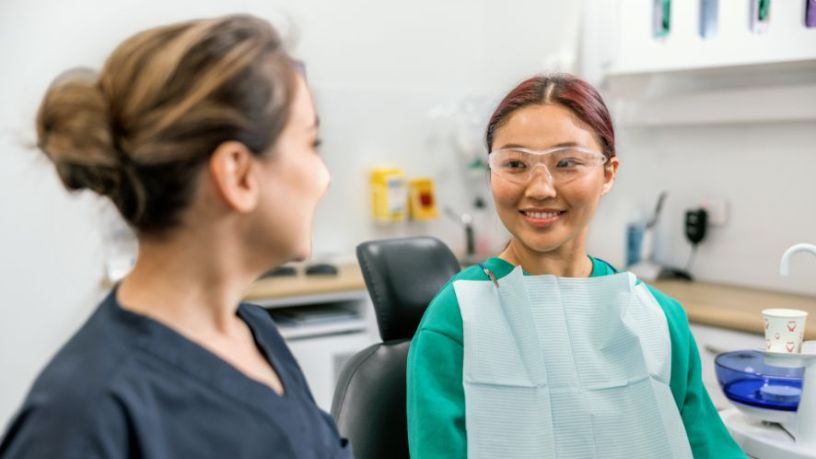Homemade toothpaste has grown in popularity as a natural alternative, but is it actually good for you?
Key takeaways
Natural doesn’t always mean better, as harmful ingredients can find their way into some homemade toothpaste recipes.
Fluoride is an important dental additive that protects your teeth against tooth decay.
You can make many things with basic pantry ingredients, from body scrubs to bath bombs, and even toothpaste.
But Bupa’s Head Dentist Dr Cathryn Madden warns homemade ‘natural’ toothpaste may do more harm than good.
Natural doesn't mean harmless
When you’re scrolling on social you might see claims that natural toothpaste can detoxify, whiten, clean, freshen, protect and heal your teeth in a way that mainstream products can’t.
Some ingredients for homemade toothpaste recipes include coconut oil, lemon juice, baking soda, salt, hydrogen peroxide, charcoal and even wasabi.
Dr Madden warns, some of these ingredients may cause irreversible harm to your teeth and the soft tissue of your mouth.
“You’ve got ingredients like lemon, which is natural, but it’s also very acidic,” says Dr Madden.
“So, if it’s applied directly to your teeth, it can damage the enamel.”
Other commonly promoted ingredients like vinegar (which is sometimes used as a teeth whitener) can also wreak havoc on enamel.1
“Once your top layer of enamel is gone, you can never get it back,” says Dr Madden. “It can make your teeth sensitive and very vulnerable to decay.”
“Hydrogen peroxide can also potentially cause chemical burns to your lips and teeth.”
There's no substitute for fluoride
According to Dr Madden, the biggest concern about homemade toothpaste is its absence of fluoride.
Fluoride is used in a range of dental products to strengthen enamel and prevent cavities. In Australia, small amounts of fluoride are even added into the water supply to help reduce tooth decay, one of the most common health problems in the country. 2
“Fluoride really is that magic ingredient that prevents decay, and there’s really good scientific evidence to support that,” says Dr Madden. “If there’s very early signs of decay, using fluoride regularly can also prevent a cavity appearing.”
There's nothing else out there that does what fluoride does, and so it is cause for concern that people are choosing to make their own fluoride-free pastes.
Fluoride is particularly important for children, Dr Madden adds, but it should be used with care.
“Make sure you use an age-appropriate toothpaste, because children's toothpaste doesn’t contain as much fluoride as adult’s toothpaste,” she says. “Make sure you supervise your child to ensure they don’t use too much as they only need a pea size amount.”
For some advocates of natural toothpaste, it’s the lack of fluoride (alongside other ingredients) that is beneficial, as very high exposure to fluoride has been linked to health issues.3 However, research also shows that adequate amounts of fluoride (used in things like dental products and water) are safe.4
Fluoride-free dental care
If you’re not comfortable using fluoride, Dr Madden says you’re better off buying a natural toothpaste rather than making your own.
“There are plenty of good natural toothpastes that are commercially available,” she says.
“But if you're choosing not to use fluoride in your toothpaste, you really have to be doing everything else really, really well so you don’t develop decay.”
This means:
- brushing at least twice a day
- flossing every day
- consuming a low-sugar diet
- seeing a dental professional twice a year for check-ups.
“It’s really great to see that people are so proactive about their health,” Dr Madden adds. “But if you’re thinking of trying something new, you’ve got to follow the advice of a dental professional.”
Find your nearest Bupa Dental Clinic

At Bupa, trust is everything
Our health and wellbeing information is regularly reviewed and maintained by a team of healthcare experts, to ensure its relevancy and accuracy. Everyone's health journey is unique and health outcomes vary from person to person.
This content is not a replacement for personalised and specific medical, healthcare, or other professional advice. If you have concerns about your health, see your doctor or other health professional.
1Penn Dental Family Practice. (2024). How to Whiten Teeth Naturally and Safely. University of Pennsylvania.
2Australian Government, National Health and Medical Research Council. (2017). Water Fluoridation and Human Health in Australia: Questions and Answers. Australian Government, Department of Health and Aging.
3World Health Organization. (2024). Inadequate or excess fluoride. World Health Organization.
4National Institutes of Health, Office of Dietary Supplements. (2024). Fluoride: Fact Sheet for Health Professionals. National Institutes of Health.
You might also like...
The importance of oral hygiene
Bupa dentist Dr Malcolm Duff explains why looking after your teeth and gums should be an important part of your daily routine.
Home teeth whitening: Is it safe?
Home teeth whitening kits might seem like a great idea, but they aren’t always what they’re cracked up to be. Discover whether they’re safe or effective.
Bruxism: The teeth disorder you might be sleeping on
If you’re having trouble sleeping, your teeth might be to blame. Find out how bruxism may be affecting you.
Visiting a dentist in Australia
Regular dental check-ups are an important part of maintaining a healthy smile. Discover 6 things you should know about visiting a dentist in Australia.





